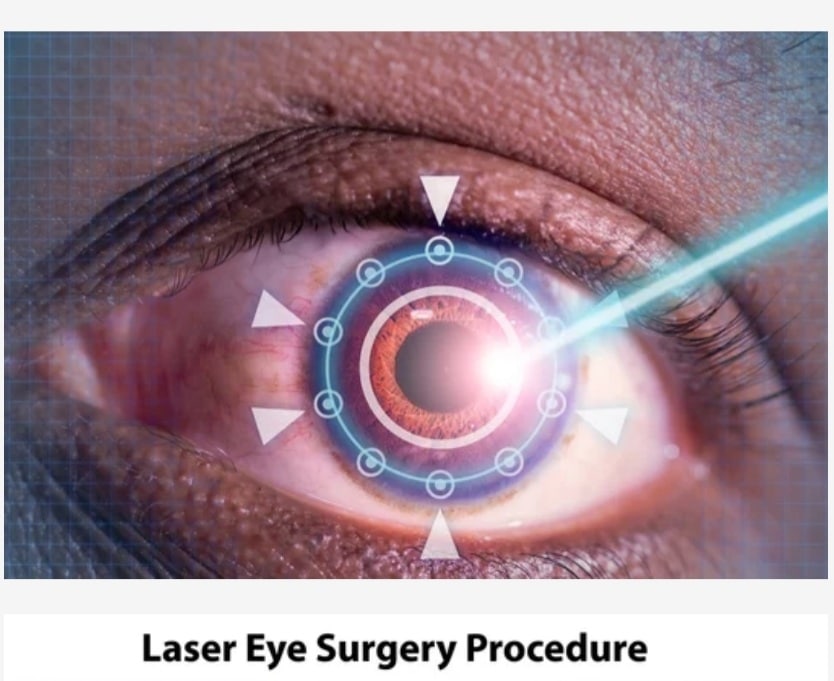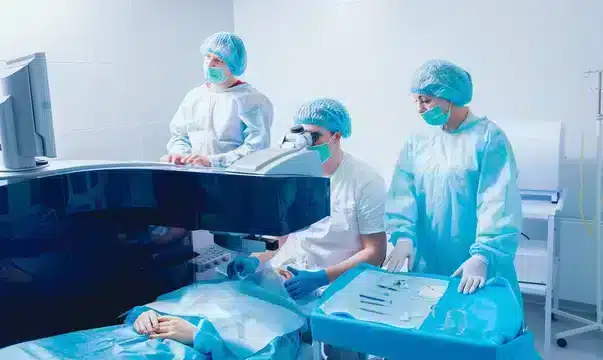Having poor vision isn’t as simple as getting some glasses and forgetting about it. It involves getting frequent exams to check to see if the vision hasn’t gotten worse. And lingering too long with the wrong prescription for glasses can end up causing worse vision and even headaches.
It is something that many people with glasses learn to live with. However, some have decided that enough is enough and they are looking into getting Lasik surgery to permanently fix their vision. Since it is a type of surgery, it isn’t a decision to get into lightly. In this article we will go over everything that you need to know so you can understand if Lasik is your best option.
What does Lasik do?
There are several vision problems that Lasik can fix for you. However, not every eye problem is a candidate for it.
Essentially, the surgery will reshape the surface of the cornea so it can help the eye see things the way they should be seen. Many vision problems start with the cornea so when it is changed, the light enters the retina the way it should.
Problems like myopia, hyperopia, and astigmatism are easily fixed with Lasik surgery. Myopia is also called nearsightedness and is what happens when people can’t see things that are far away but are able to see up close. Hyperopia is also called farsightedness and is the opposite of myopia. This affects a lot of people that are unable to read without glasses.
Astigmatism is a problem in which the cornea is already not shaped correctly and Lasik is used to bring it to the correct shape.
There is another vision problem called presbyopia that is experienced by many older people. It is a common problem as it is caused by the elasticity of the eyeball being loose from the aging process. Often, this is when people start using reading glasses. However, in some cases Lasik is able to fix this problem. This is a case in which it pays to have a consultation with a vision specialist like your local eye doctor Salt Lake City or wherever you live. They can give you a better idea if it seems that Lasik will help or not depending on your case.
The surgery itself lasts only roughly 15 minutes and has very few side effects.
Can you have Lasik done while pregnant?
Many women end up with some unforeseen problems when they become pregnant. Some will experience tooth loss if they already are having some issues with their teeth and gums. Others end up with some vision problems since the body goes through such a dramatic transformation.
In fact, it can be quite common to have vision problems since blood pressure is directly related to certain dysfunctions in the cornea. Since pregnancy can affect blood pressure, vision can suffer.
The surgery itself shouldn’t cause any problems for the pregnancy since it is very low impact and doesn’t require any invasive treatments.
Where things can be tricky with regards to pregnancy are the eyedrops that are given as medication post surgery. They are not only an antibiotic, but also a steroid. While the medicine is perfectly safe for the mom, it could be quite dangerous for the fetus.
Vision can be back to normal after pregnancy but since blood pressure is still fluctuating, vision problems may linger. Unfortunately, the medicine is as unsafe for a newborn as it is for a fetus if the mother is breastfeeding. This means that the Lasik surgery should be postponed until after pregnancy if you plan to formula feed a baby, or to wait until after breastfeeding is finished.
Is the surgery painful?
Luckily, Lasik surgery is barely invasive at all. This means that there is virtually no pain at all during surgery. Numbing eye drops are given beforehand and the surgery only begins when the drops have taken effect so there is no pain felt while the procedure is being done.
After the surgery, there will likely be some discomfort. Very few patients report feeling any pain afterward. There is a high likelihood that you will experience an itching or burning sensation in the eyes. This is very normal, but also risky as people tend to rub their eyes and damage them due to their sensitivity from the surgery.
Protective eyewear will need to be worn to avoid rubbing your eyes. The discomfort passes quickly so you won’t need to wear the eyewear for very long after the surgery is finished.
The best time to get Lasik
Lasik surgery can be done anytime you prefer. It is best done before the summer, for a number of reasons.
Since many people take their vacation in summer, the spring is the best time to have the surgery done so the vacation can be sully enjoyed. Swimming is not allowed for at least two weeks after the surgery is done so the salt water or chlorine from a pool won’t interfere with healing. Also, there will be some sensitivity to light and the strong sun on the beach will make it difficult to sunbathe.
Another reason that spring is a good time to do this is because when you take your summer vacation, or even just a trip to the beach for the day, you can pack much lighter. If you were a contact lens wearer then you will love not having to pack along all the gear required to wear them, not to mention having to remember to take them out before swimming.
Other than that, the best time to get the surgery is when you are able to take some time off of work. You should be able to drive starting the next day, but there is the possibility of it being a few days before you can safely get behind the wheel again. Also the itchy eye sensation doesn’t lend itself well to having to focus on a computer screen so taking a few days off is the best way to allow your eyes to properly heal.



